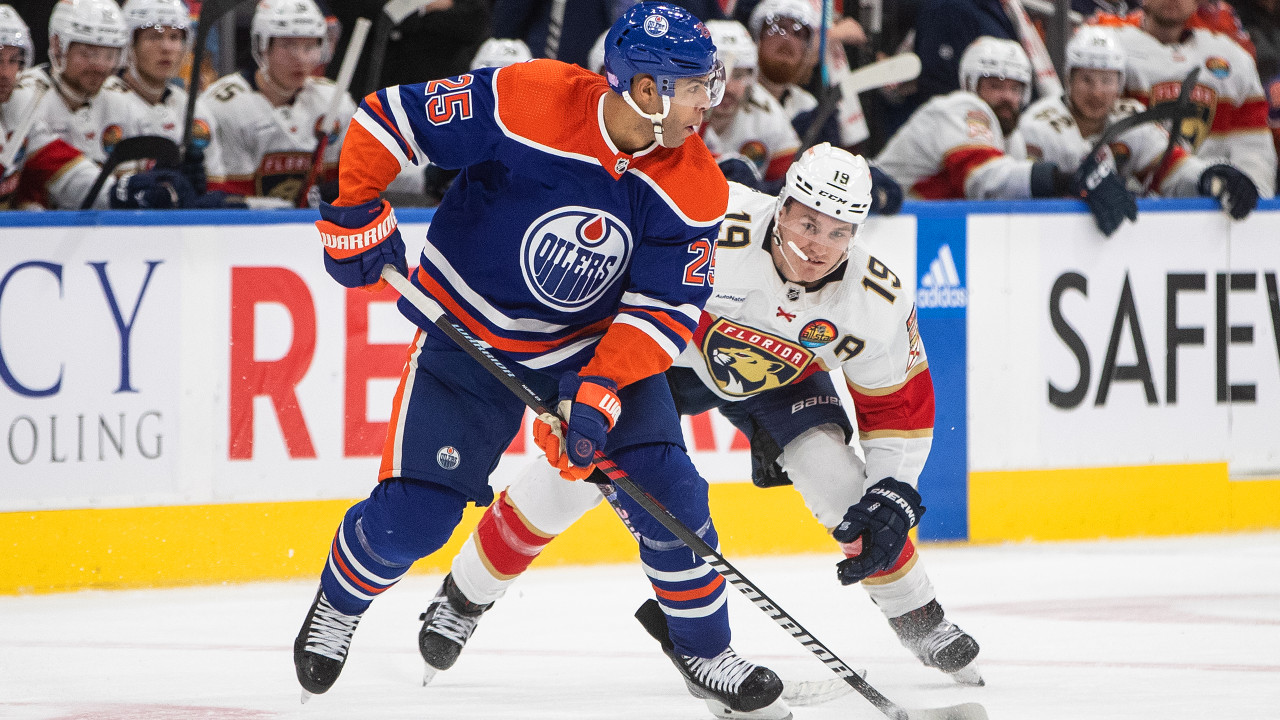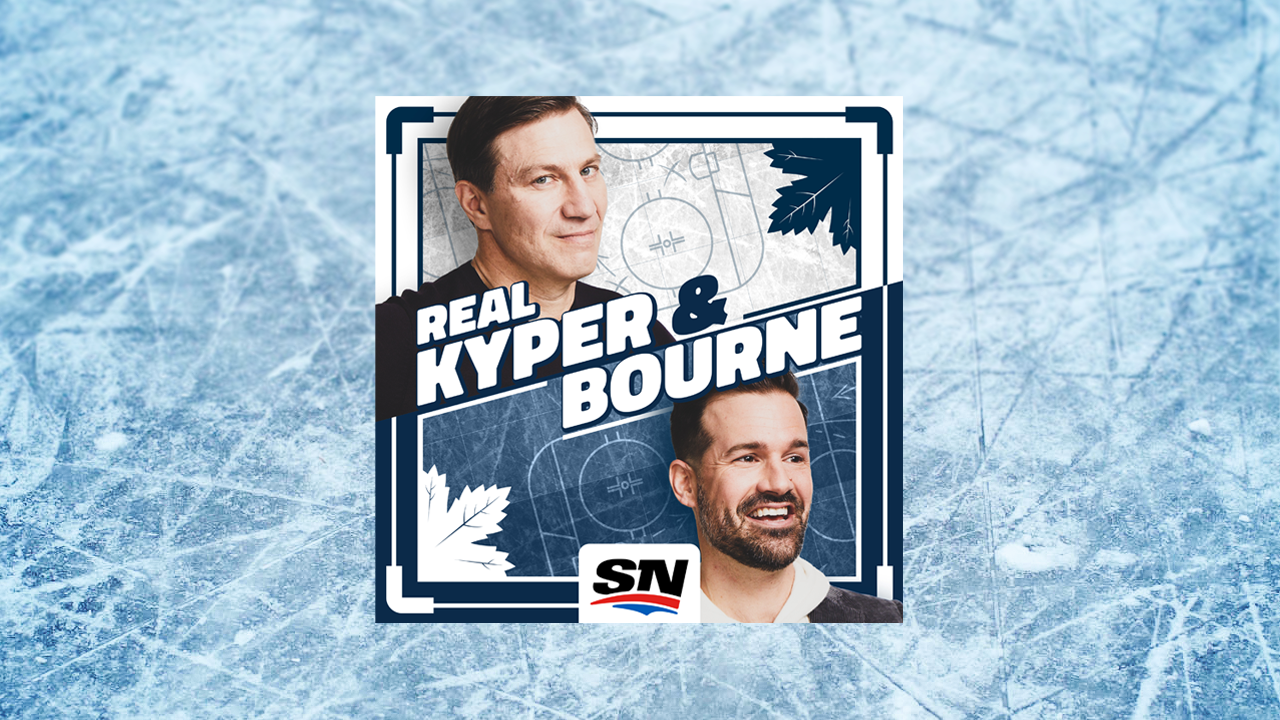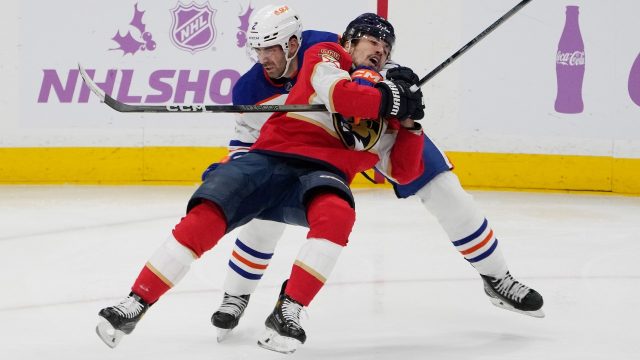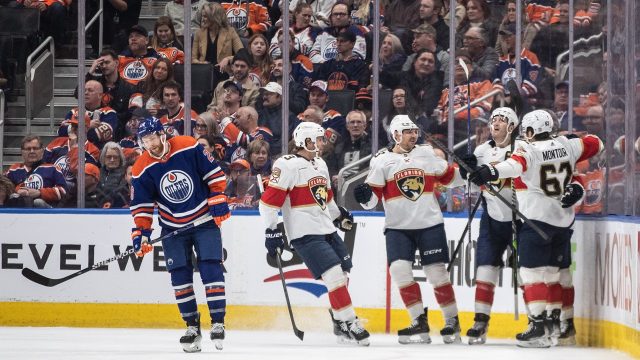
Connor McDavid vs. Aleksander Barkov.
Stuart Skinner vs. Sergei Bobrovsky.
Kris Knoblauch vs. Paul Maurice.
There are dozens of matchups in this year’s Stanley Cup Final that will be fascinating to watch, as they’ll all impact the final outcome one way or another, meaning you can’t boil the series down to any one thing.
But some things are more important than others, and as we’ve come to get to know these two teams over the 2023-24 season a few very specific items have regularly surfaced:
1. Florida is the most physical, combative team in the league.
2. The Oilers are uniquely equipped to destroy an opponent that wants to get into a special teams affair.
The facts are pretty simple. During the regular season, no team in the NHL took more penalties than the Panthers. In the playoffs, they’re again the team that’s spent the most time in the box. They also lead the playoffs in hits. We don’t track “time spent in scrums,” but I promise you they’re tops there too.
Our producer on Real Kyper and Bourne (Sam McKee) used a word about Florida and their playing style earlier this season that I love and now use a lot: they play offended. They look for any excuse to get into a post-whistle eff-you off, whether someone touched their goalie, or shot the puck after a whistle, or breathed in the general direction of one of their equipment managers, whatever. It literally doesn’t seem to matter what it is, but they’re ready to go to war over it.
The Edmonton Oilers are no shrinking violets, and they’ve got plenty of veteran experience on their team, so this isn’t going to blow their minds or anything. To go with that, they may hold the antidote. If Florida wants to take penalties, the Oilers have the number one power play in the post-season. For a bigger sample, over the past three seasons Edmonton is at 28.4 per cent on the power play while no other team in the league can claim 26 per cent, scoring 10 more goals than the next best power play (Tampa Bay) over that time.
McDavid, Leon Draisaitl, Evan Bouchard, Zach Hyman, Ryan Nugent-Hopkins, I mean…they’re perfectly constructed to produce, custom built in a lab for a 1-3-1 power play unit (that freestyles as it sees fit).
And so, Florida will do that thing they do, where they commit 1,000 infractions per game knowing the refs don’t want to — and can’t — call everything, so they put it in the officials’ hands to actually make some calls.
There’s some fun work that’s been done on penalties called in the post-season (namely by Dom Luszczyszyn) which, to summarize, shows officials call the most penalties in the first game or two of the first round, then it tails off as the series goes on. Then it picks up again for game one or two of the second round (though not as high as round one), before tailing off again. In the end we know that refs call the fewest penalties per game in the Stanley Cup Final, and the frequency drops as the games get bigger. In this series, the onus is going to fall on the refs to call what’s really there, rather than “just let the playoffs decide it,” when in fact choosing to not call penalties is taking the game into their own hands.
It will be a stark contrast of a series for the Oilers, who are coming off a matchup against a Dallas team that took the fewest penalties in the NHL this season – they’re going from playing the 32nd-most penalized team to first here. Still, the Oilers showed they could handle the battle when Los Angeles, and more specifically Vancouver, tried to take it to them.
One of the ways this series will be different will be in the blue paint, where the Panthers led me to write this article, which noted that Florida had been involved in every goaltender interference challenge in the playoffs. Their skaters will go to the crease and get into the opposing goalie, while their own goalie will push out into traffic and hope to eliminate the damage from any potential tipped pucks. In all, it can be mayhem around the blue paint.
There’s a great debate to be had about “answering the bell” versus “playing your own game” for the Western Conference champs. I think back to the infamous rabbit punches Brad Marchand once gave one of the Sedin brothers in the 2011 Cup Final, or the fallout from Auston Matthews choosing not to engage Ben Chiarot in a series that the Canadiens eventually took from the Leafs. The point being, it doesn’t seem like a great plan in the playoffs where the refs “let players play” to simply turn the other cheek and hope for power plays to be called in your favour.
And so, to some extent, the Oilers will have to have some pushback. The good news is, they can provide some of that, with Evander Kane and Zach Hyman uniquely equipped to both be relevant offensively, but also take it to their opponents. That’s Florida’s big superpower with all this “toughness” talk – it comes from guys who truly play and matter like Sam Bennett and Matthew Tkachuk.
So while Kane and Hyman will have to be ready (to name just a couple guys), in the end the best thing that can happen to the Oilers is that they’re able to get to their own game before Florida’s can take hold.
There’s a world where Edmonton’s power play starts out on fire, the Panthers find themselves chasing games, getting more frustrated, taking more penalties, and feeding the beast.
Given their roster, Florida can play it just about any way you want to play it, but “offended” hockey is their sweet spot. The Oilers’ best chance to combat that is to frustrate them early by taking some leads and making them pay on special teams. That would leave Florida chasing, and nobody feels good about “getting to their game” when their dreams are slipping away.
That has to be the Oilers’ lesson. Engage and push back, sure, but make the Panthers pay early on the scoreboard. There may be more than one way to skin a cat, but if you start to let these ones in your kitchen, you’re a lot more likely to be the one on the wrong end of the knife.








